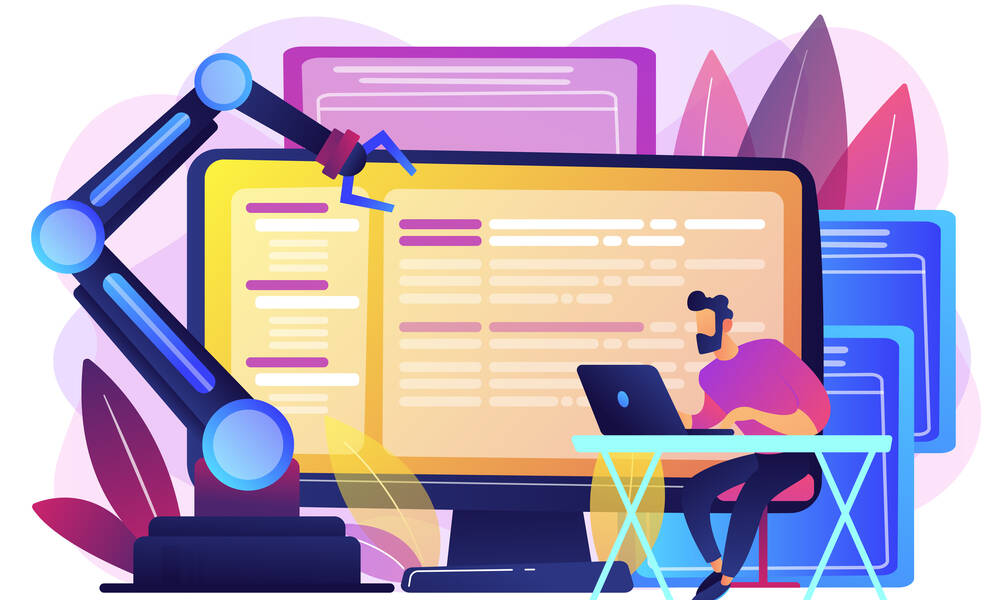
Do You Rely on Open-Source Software? Offer Your Support.
A recent scheme by a programmer to attempt to fund his open-source project through advertising drew heavy backlash among fellow programmers, but his bigger point is one associations can appreciate.
The “free as in freedom” mindset of open-source software, which is increasingly finding its way into mainstream work environments, is starting to show some cracks.
The latest crack appeared within the terminal screen—an experiment by a developer who was trying to find some way, any way, to financially support his widely used work.
Here’s what happened: The open-source programmer Feross Aboukhadijeh, who develops a popular JavaScript programming tool called Standard, decided to create a new JavaScript package called Funding. Funding did something unique for an open-source package: Basically, a developer attached it to another package (which Aboukhadijeh did to Standard), and it showed a “banner” ad in the terminal. It was not a highly graphical ad—just a link and a line of text in a gray box—but it was enough to raise a contentious discussion in the open-source universe.
Funding went down almost immediately, a victim of a massive backlash. (Someone even developed an ad blocker!) Explaining why he did it, Aboukhadijeh said he was concerned that the funding model for open-source software was “not working” and experimentation was needed.
“More broadly, I wanted to start a conversation about cultural norms around open-source consumption,” he wrote in a post-mortem on his blog. “Right now, the status quo is that maintainers create massive amounts of value and then for-profit companies and SaaS startups capture almost all of it.”
Right now, the status quo is that maintainers create massive amounts of value and then for-profit companies and SaaS startups capture almost all of it.
Problem is, a portion of the internet—the one that would develop software in a terminal interface—really hates ads. And with that in mind, the makers of the distribution tool NPM quickly barred tactics like Aboukhadijeh’s from their platform.
Aboukhadijeh clearly did this to spark a discussion and so—as your association is probably a beneficiary of open-source software whether you realize it or not—let’s talk.
A Form of Volunteering
The greatest thing about open-source software, the freedom to share and distribute code, may also be its fatal flaw from an economic standpoint. While lots of open-source code is developed and distributed by large companies, much of it is made by people who don’t make any money from it but who have a passion for building software.
That kind of volunteer-driven development is the basis for the entire industry—Linus Torvalds didn’t get into developing operating systems because he was looking for someone to pay him, after all—but there’s a case to be made that open-source development has been at times exploitative. About a year ago, a big debate in the open-source world involved a database project that attempted to change its licensing to force large users to pay their fair share for a piece of software that, to put it in Aboukhadijeh’s terms, was creating significant amounts of value for large companies, while the people who developed it were failing to capture any of it.
Associations understand the importance of volunteer work. Members contribute their time to help support an association’s work in ways big and small, for tasks as diverse as community moderation, mentoring, and content creation.
Of course, volunteering also brings benefits for members, including development of important skills, exposure in the community, and enhanced networking opportunities. For many, volunteering makes the membership experience more powerful.
Depending on how much it is used, open-source software can be a fundamental part of how an organization works. But unlike more traditional volunteering approaches, someone who works on an open-source project you use may be extracting little value from it.
Ways to Offer Support
Maybe advertising isn’t the best way support the open-source economy, so how can users, including associations, help? Support can come in many forms, such as tax-deductible donations, promotion of the tool to members, or possibly (depending on your staffing) even contributing code. As I wrote last year, hiring someone who develops an open-source tool can be a great way to get a highly technical employee who knows a thing or two about mission.
Your organization surely can’t support every open-source project under the sun, but the tools that are fundamentally useful to your technology stack or broader sector might benefit from affiliation with you. There is a recent trend of associations supporting startup accelerators. This plays into the same mindset, and there might even be a more direct kinship.
Like associations, open-source projects are frequently run by nonprofits, often through foundations. In many ways, they share much of the same DNA. A little extra support from you could help strengthen their work, while building support for your own use of those tools.
(RaStudio/iStock/Getty Images Plus)






Comments